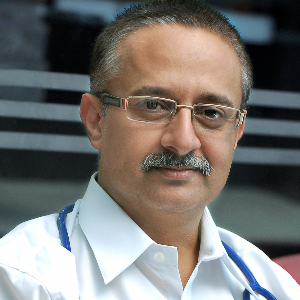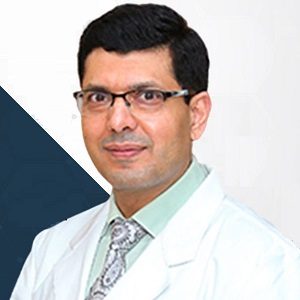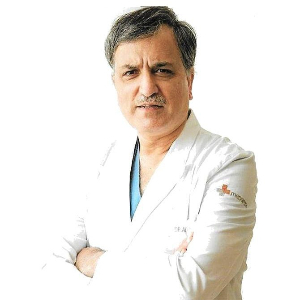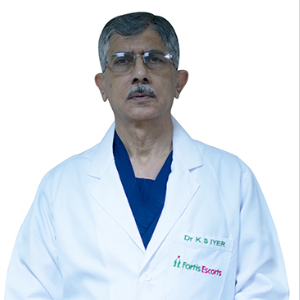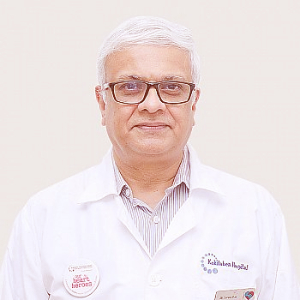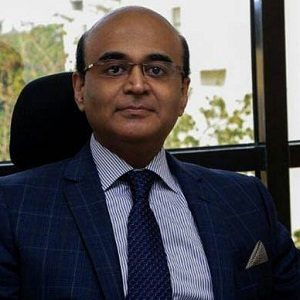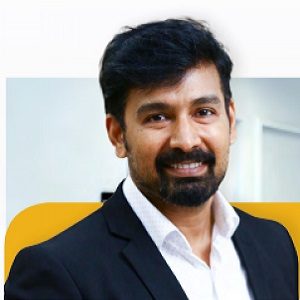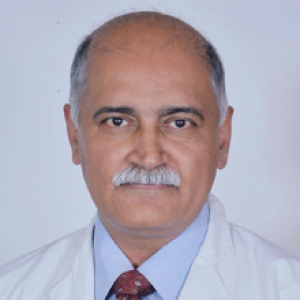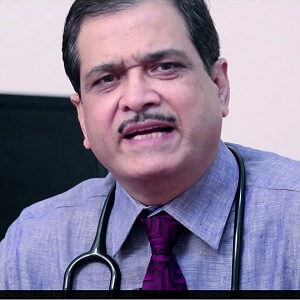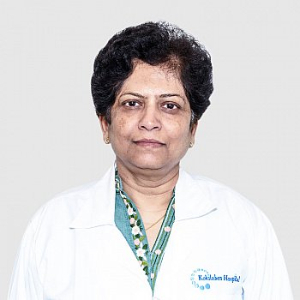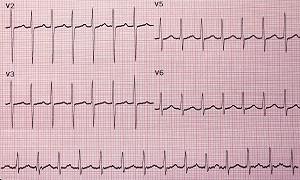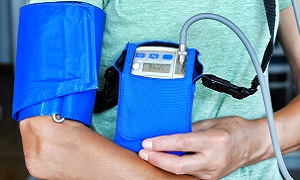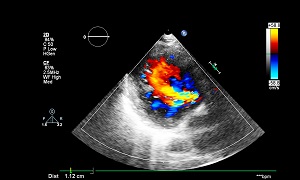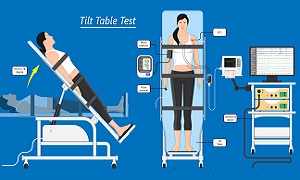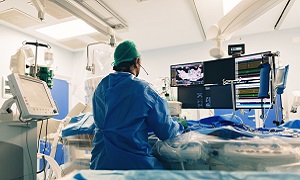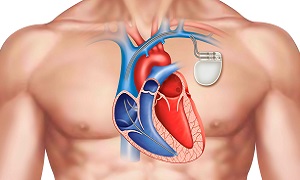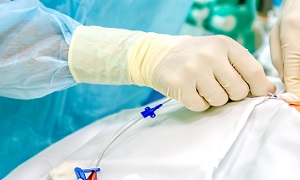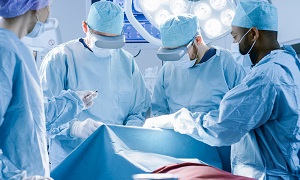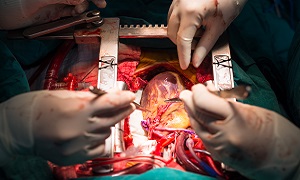Best Doctors in India for Arrhythmia Treatment
- Pediatric Cardiac Surgeon, New Delhi, India
- Over 30 years’ experience
- Marengo Asia Hospital, Faridabad
Profile Highlights:
- Dr. Rajesh Sharma is one of the most experienced and widely acclaimed Cardiothoracic and Vascular surgeons specializing in pediatric cardiac surgery in India.
- He provides treatment for both adult and pediatric heart diseases and disorders and focuses primarily on complex congenital heart diseases.
- Dr. Sharma’s expertise lies in infant and Neonatal cardiac surgery, surgery for transposition of the great arteries, Fontan circulation, and acquired heart diseases.
- His experiences encompass over 3 decades during which he has performed over 20,000 heart surgeries including congenital heart disorders as well as acquired heart defects.
- Top Pediatric Cardiologist | Fortis Escorts, New Delhi, India
- 23 Years Experience
- Fortis Escorts Heart Institute New Delhi
Profile Highlights:
- Dr. Ashutosh Marwah is a highly esteemed Director Paediatric Cardiologist practicing at Fortis Escorts Heart Institute, Okhla Road, New Delhi.
- With over 23 years of dedicated experience in the field.
- Dr. Marwah’s educational background includes an MBBS, MD in Paediatrics, and a specialized Fellowship in Paediatric Cardiology from Melbourne.
- Cardio Thoracic & Vascular Surgeon, Gurugram, India
- Over 35 years’ experience
- Medanta-The Medicity, Gurgaon
Profile Highlights:
- Dr. Anil Bhan is an excellent Cardiovascular and thoracic surgeon who has performed more than 15,000 cardiac and vascular surgeries that include heart transplant surgery, aortic aneurysm surgery, pediatric cardiac surgery, valve repairs, and peripheral vascular surgery among several others.
- He is one of the best pediatric cardiac surgeons in Delhi/ NCR and is credited with performing heart bypass surgery on the youngest patient in India in 2007 (18 months).
- He performed the first extracorporeal membrane oxygenation (ECMO) and was the first to use a harmonic scalpel for harvesting radial mammary artery conduits in India in 2000 and 1995 respectively.
- Top Pediatric Cardiac Surgeon | Fortis Escorts, New Delhi, India
- 40+ Years Experience
- Fortis Escorts Heart Institute New Delhi
Profile Highlights:
- Dr. Krishna Subramony Iyer is one of the best Pediatric Cardiac surgeons in India and specializes in congenital heart diseases.
- He has been practicing pediatric cardiac surgery for over 4 decades and has performed more than 10,000 surgeries through various procedures like double switch operation TAPVC repairs, Fontan and Fontan, arterial switch, and DORV.
- Dr. Iyer has been associated with Escorts Heart Institute for a long time and is responsible for establishing the first pediatric cardiac care program in North India in 1995.
- Top Pediatric Cardiac Surgeon | Kokilaben Hospital, Mumbai, India
- 37+ Years Experience
- Kokilaben Dhirubhai Ambani Hospital
Profile Highlights:
- Dr. Suresh Rao is a highly experienced cardiac surgeon specializing in congenital heart diseases and has performed more than 12,000 surgeries for congenital heart diseases and disorders.
- Dr. Rao holds an extensive experience of over 37 years in Pediatric and congenital cardiac surgery and has performed numerous simple and complex heart defect surgeries with successful outcomes.
- Dr. Suresh Rao introduced the Modified Ultrafication procedure after congenital heart surgery in India and has used the procedure in the treatment of a large number of pediatric as well as adult patients.
- Pediatric Cardiac Surgeon, Cardiothoracic and Vascular Surgeon, Chennai, India
- Over 25 years’ experience
- Apollo Children Hospital Chennai
Profile Highlights:
- Dr. Neville Solomon is a distinguished Pediatric Cardiac Surgeon with over 25 years of experience in the field, currently serving as the Head of the Department of Pediatric Cardiac Surgery at Apollo Children’s Hospital, Greams Road, Chennai.
- Renowned for his exceptional skills and dedication, Dr. Solomon has conducted over 6000 heart surgeries, addressing complex congenital heart conditions in both infants and adults.
- His commitment to advancing medical care for children with heart conditions has positioned him as a leading expert in his field.
- Paediatric Cardiologist, Chennai, India
- Over 10 years’ experience
- Apollo Children Hospital Chennai
Profile Highlights:
- Dr. Muthukumaran C S is one of the finest Heart Specialists in India. He has successfully operated on more than 2500 cardiac catheterizations in children, 1000 AD closures, 250 VSD closures, and 700 PDA closures.
- The Medical practitioner has been associated with various reputed hospitals in India. Dr. Muthukumaran C S has been associated with many hospitals over the course of his illustrious and experienced career.
- Top Cardiac Surgeon | Max Hospital, Saket, New Delhi, India
- 29+ Years Experience
- Max Super Specialty Hospital, Saket, New Delhi
Profile Highlights:
- Dr. Kulbhushan Singh Dagar, a pioneer and an expert in the cardiology field earned his reputation through his exceptional performance in the field of complex congenital heart defects, especially for newborns.
- With over 29 years of experience, Dr. Dagar has dedicatedly performed complex surgical procedures by implementing innovative techniques and cutting-edge technologies in his procedures and is currently considered an asset to the cardiac industry, not just nationally, but internationally too!
- Top Interventional Cardiologist | Apollo Hospital, New Delhi, India
- 26+ Years Experience
- Indraprastha Apollo Hospital, New Delhi
Profile Highlights:
- Dr. Rajeev Kumar Rajput is one of the best Cardiologists in India with nearly 23 years of experience. He is a clinical cardiologist engaged in diagnosing and treating cardiovascular diseases.
- Dr. Rajput is currently working as a senior consultant with Indraprastha Apollo Hospitals, New Delhi, and also offers patient care at the Heart & Gynae Clinic.
- Dr. Rajeev Kumar Rajput specializes in Angiography and Interventional Cardiology. The treatments provided involve Neonatal and Infant cardiac surgeries, Device Closure, and Valve replacement. He has expertise in Aortic Aneurysm Surgery, Vascular Surgery, Percutaneous Coronary Interventions, Endovascular Repair, Cardiac Catheterisation, Open Heart Surgery, and MV replacement.
- Dr. Rajput is credited with publishing several papers in noted medical journals.
- Top Pediatric Cardiologist | Kokilaben Hospital, Mumbai, India
- 20+ Years Experience
- Kokilaben Dhirubhai Ambani Hospital
Profile Highlights:
- Dr. Snehal Kulkarni is a renowned pediatric cardiologist who specializes in the management and treatment of fetal cardiac diseases, non-invasive pediatric cardiology, and Adult Congenital heart diseases.
- She is an expert in Diagnostic and Interventional Cardiac Catheterization, Stent implantation, Cardiac Pathology, and Balloon dilatation.
- She has more than 2 decades of experience in pediatric cardiology and has acquired her training from prestigious institutions in USA.
Best Hospitals in India for Arrhythmia Treatment
- City: New Delhi, India
Hospital Highlights:
- Over the last 33 years, the Fortis Escorts Heart Institute has set new standards in cardiac treatment with groundbreaking research. It is now known around the world as a centre of expertise for Cardiac Bypass Surgery, Interventional Cardiology, Non-invasive Cardiology, Paediatric Cardiology, and Paediatric Cardiac Surgery.
- The hospital has cutting-edge laboratories that perform a wide range of diagnostic tests in Nuclear Medicine, Radiology, Biochemistry, Haematology, Transfusion Medicine, and Microbiology.
- Fortis Escorts Heart Institute boasts a diverse group of bright and experienced doctors who are backed up by a team of highly qualified, experienced, and devoted support professionals as well as cutting-edge equipment such as the recently installed Dual CT Scan.
- Approximately 200 cardiac doctors and 1600 personnel currently collaborate to manage over 14,500 admissions and 7,200 emergency situations each year. The hospital now has a 310-bed infrastructure, as well as five cath labs and a slew of other world-class amenities.
- City: Faridabad
Hospital Highlights:
In the sprawling city of Faridabad, where healthcare needs are diverse and ever-evolving, one institution has consistently stood out as a beacon of excellence in the field of medicine—Marengo Asia Hospital. Established with a vision to provide world-class healthcare services to the community it serves, Marengo Asia Hospital has emerged as a trusted name synonymous with quality, compassion, and innovation in healthcare.
- City: New Delhi, India
Hospital Highlights:
- Equipped with 650 beds, BLK-Max Super Speciality Hospital is the largest stand-alone private sector hospital in Delhi.
- With over 1500 healthcare providers and 150 globally renowned super specialists, the hospital is one of Asia’s largest BMT Centres. The hospital is known for having some of the best cancer doctors in the country.
- The hospital is NABH and NABL accredited and was inaugurated by the first Prime Minister of India. Pt. Jawahar Lal Nehru.
- City: Chennai, India
Hospital Highlights:
- Located in Chennai, India, MGM Healthcare is a top multispecialty hospital that provides all medical services under one roof.
- Since its founding in 2019, MGM Healthcare has quickly become a leading national referral centre, creating several innovative flagship initiatives.
- MGM Healthcare combines next-generation medical and digital technologies to provide better patient results.
- With 12 centres of excellence, more than 400 inpatient beds, 100 intensive care unit beds, and 24/7 emergency care, MGM Healthcare leaves no chance in redefining the patient experience in Chennai.
- MGM Healthcare boasts 250+ expert doctors across 30+ departments, including Cardiology, Pulmonology, Neurology, Obstetrics & Gynaecology, and more.
- They house 12 specialized Centres of Excellence, including Neurosciences, Orthopaedics, and Multi-Organ Transplantation.
- Their team of doctors, nurses, and paramedics works together to give every patient individualized treatment.
- City: Noida, India
Hospital Highlights:
- Fortis Hospital, Noida, stands as one of the oldest and most trusted healthcare institutions in the region, setting a benchmark for comprehensive medical care.
- As the second mega hub hospital in the Fortis Healthcare Group, Fortis Hospital, Noida, upholds a legacy of trust among more than 1.2 million patients. By integrating top-tier professionals with cutting-edge technology, the hospital delivers superior treatment across various medical disciplines.
- Specializing in advanced Neurosciences, Orthopedics, Kidney and Liver Transplant Programmes, Fortis Hospital, Noida has successfully performed over 1,500 transplants, solidifying its reputation as a leader in specialized medical interventions.
ARRHYTHMIA
Arrhythmia is a condition of irregular heartbeat, where a person’s heart may beat too fast, too slowly or with an irregular rhythm. This problem occurs when the electrical signals that coordinate heartbeats don’t work properly. An irregular heartbeat might feel like a racing heart. Sometimes, doctors use the word ‘dysrhythmia’ to describe this condition, but the words ‘dysrhythmia’ and ‘arrhythmia’ actually means the same.
Many heart arrhythmias are harmless. However, if they become highly irregular or result from a weak or damaged heart, it can cause severe and potentially fatal symptoms as well as complications.
Types of Arrhythmia
There are different categories of arrhythmia, which includes:
- Bradycardia, a slow heartbeat
- Tachycardia, a fast heartbeat
- Irregular heartbeat also called flutter or fibrillation
- Early heartbeat, also called as a premature contraction
The majority of arrhythmias are not severe and they don’t cause complications. However, there are some, which can increase the risk of stroke or cardiac arrest.
Symptoms of Arrhythmia
Arrhythmias might not cause any signs or symptoms. It is usually found by your doctor while having a routine examination. It is also important to note that having a few signs and symptoms doesn’t necessarily mean that your condition is serious.
Some of the noticeable symptoms of arrhythmia include:
- A fluttering in your chest
- A slow heartbeat
- Chest pain
- Shortness of breathe
- A racing heartbeat
- Fatigue
- Anxiety
- Sweating
- Fainting
- Lightheadedness
If you are experiencing these problems on a regular basis, you might consider seeking urgent medical care. Ventricular fibrillation is a type of arrhythmia that can be deadly. It occurs when your heart beats with rapid, erratic and electrical impulses. This can cause the lower chambers of your heart to quiver uselessly instead of pumping blood. Without a proper and effective heartbeat, blood pressure plummets and it cuts off blood supply to the vital organs.
A person suffering from ventricular fibrillation can collapse within a few seconds and soon won’t be breathing or having a pulse. If this happens, you need to call the emergency number in your area. If you find no one who is trained in cardiopulmonary resuscitation, try to provide hands-only CPR. Also, see if an automated external defibrillator is available nearby. They might be available in several places, such as airplanes, police cars or shopping malls.
Causes of Arrhythmia
Several causes leading to arrhythmia is there, such as
- Alcohol abuse
- Diabetes
- Drinking a lot of coffee
- High Blood Pressure
- Hyperthyroidism
- Stress
- Scarring of the heart, often due to a heart attack
- Substance abuse
- Certain medications or supplements
- Smoking
- Structural changes in the heart
A person having a healthy heart won’t ever experience long-term arrhythmia, unless they receive an external trigger, such as an electrical shock.
Diagnosis of Arrhythmia
For diagnosis of a heart arrhythmia your doctor will review your symptoms as well as your medical history, after which a physical examination will be conducted. Your doctor might ask you about conditions that can trigger your arrhythmia, such as heart disease or a problem with the thyroid gland. Your doctor might also perform heart-monitoring tests specific to arrhythmias. These can include:
Electrocardiogram
Holter monitor
Event recorder
Echocardiogram
Implantable loop recorder
Stress test
Tilt Table Test
Your doctor might recommend tilt table test if you’ve had fainting spells. Your heart rate and blood pressure are monitored as you lie flat on the doctor’s table. Then the table is tilted as if you were standing up. This can help your doctor observe how your heart and the nervous system which controls it respond to the change in angle.
Electrophysiological testing and mapping
Treatment options for Arrhythmia
Treating slow heartbeats
If slow heartbeats don’t have a cause that can be corrected, then doctors usually treat them with a pacemaker because there are no medications that are known to reliably speed up the heart.
Pacemaker is a small device that is usually implanted near your collarbone. Multiple electrode-tipped wires run from the device through your blood vessels to the inner portion of your heart. If your heart rate is too slow or if it stops, the pacemaker will be sending out electrical impulses which will be stimulating your heart to beat at a steady rate.
Treating fast heartbeats
Vagal maneuvers
It is possible to stop arrhythmia which begins above the lower half of the heart with the use of particular maneuvers which can include holding your breath and straining or dunking your face in ice water or coughing.
Your nervous system is affected by these maneuvers. Therefore this method can control your heartbeat and often causes your heart rate to slow. However, this technique doesn’t work for all kinds of arrhythmia.
Medications
For various types of tachycardia, your doctor will prescribe you medication to control your heart rate or restoring a normal heart rhythm. It is quite important to take any anti-arrhythmic medication as your doctor has directed. If you are having atrial fibrillation, your doctor might prescribe blood-thinning medications to help in keeping dangerous blood clots from forming.
Cardioversion
If you are having a certain type of arrhythmia like atrial fibrillation, your doctor might use cardioversion which can be conducted as a procedure or through medications.
Catheter ablation
During catheter ablation, your doctor threads one or more catheters through the blood vessels to your heart. Electrodes that are at the catheter tips can use heat, extreme cold or even radiofrequency energy to damage a small spot of heart tissue. It will then create an electrical block along the pathway that’s causing your arrhythmia.
Sometimes a pacemaker or defibrillator can also be implanted to help in treating heart arrhythmias. When a pacemaker detects an abnormal heart rate, it will emit electrical impulses which can stimulate the heart to beat at a normal rate. A defibrillator can also detect abnormal heart rhythm and send out low or high-energy shocks for resetting the heart to a normal rhythm. However, this device will not be able to prevent the abnormal rhythm from occurring.
Surgery
Surgery is also recommended in some cases for treating heart arrhythmias:
Maze procedure
In maze procedure, a surgeon will make a series of surgical incisions in your heart tissue in the upper half of the heart. Since scar tissue will not conduct electricity, it will interfere with stray electrical impulses that can cause some types of arrhythmia.
Though this procedure is effective, it is only reserved for the people who have not responded well to other treatments.
Coronary bypass surgery
Lifestyle changes
Prevention of Arrhythmia
In order to prevent heart arrhythmia, living a healthy lifestyle is quite important to reduce the risk of a heart ailment. A heart-healthy lifestyle can include:
- Eating a diet healthy for your heart
- Staying active physically and maintaining your weight
- Avoiding smoking or inhaling smoke
- Limiting the use of caffeine and alcohol
- Reducing stress, because intense stress and anger can lead to problems in the rhythm of the heart
- Using over-the-counter medications, with caution, as some cold and cough medications contain stimulants which can trigger a rapid heartbeat.

